False alarm!published at 10:14 GMT 23 January 2020
We've returned after a fire alarm, which was just a test.
Nicola Sturgeon is quizzed during FMQs
Carlaw raises issues with police estate and the FM points to funding increases
Leonard and Sturgeon clash over student debt levels
Rennie and the FM agree police officers need more mental health support
Toxicology services, pollution levels and unpaid care work are raised from the back benches
Louise Wilson and Craig Hutchison
We've returned after a fire alarm, which was just a test.
Allow X content?
This article contains content provided by X. We ask for your permission before anything is loaded, as they may be using cookies and other technologies. You may want to read X’s cookie policy, external and privacy policy, external before accepting. To view this content choose ‘accept and continue’.
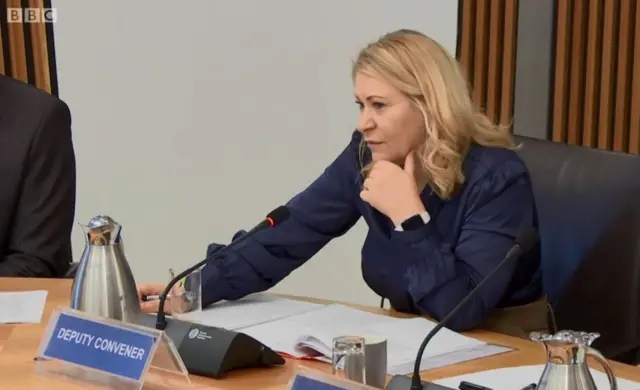
Labour MSP Pauline McNeill
Louise Murphy says there is nothing in GDPR that prevents the data sharing being discussed.
Ms Murphy adds we do require a bit of clarity and try to prevent any further confusion.
Ms McNeill asks if one big consent form saying someone agrees to share their data would help.
Fundamentally yes, replies Mr Gardner, pointing out when you sign up to Facebook or a bank the terms and conditions say you are giving permission to share data.
Louise Murphy says every local authority has access to data sets on housing benefits and council tax support.
Using this they could work out entitlement to benefits like discretionary housing payments, she adds.
Labour MSP Pauline McNeill says there is confusion around the purpose of data protection legislation.
Malcolm Gardner says there is nothing in the legislation that says you cannot do something.
The question should be whether it is in the interest of the public to share data, he insists.
SNP MSP Shona Robison asks if the data being looked at is more from the local authorities and the data being gathered is more about fraud than benefits uptake.
Megan Mclean says council tax reduction data is being used with housing benefit data.
The Policy in Practice operations analyst says automation is primarily being used around means tested benefits, as it cannot be used around disability where assessment is required.
She says the data and technology is available to any local authority.
Labour MSP Mark Griffin says some evidence points to automation potentially being negative as well as positive.
Louise Murphy from Policy in Practice says councils are already using automation in terms of council tax support claims.
"It can happen really soon; it already is happening,"
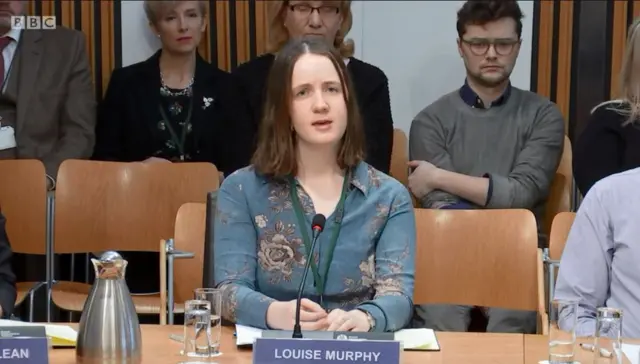
Louise Murphy from Policy in Practice
Automation can be positive as it means someone does not have to repeatedly share the same information, she explains.
However the detrimental side of automation is there is still a need for human interaction where needed.
"It's about making sure automation fits in with a wider benefits system that still has a face to face interactions."
Separate forms for separate benefits is fixed into the social security system but agencies should share information to ensure people are not having to re-enter the same data, Phil Agulnik agrees.
Statistics from HMRC and DWP estimated that in 2016/17:
Mr Brown says there are "appallingly low levels of take-up".
Convener Bob Doris wonders if a duty to inform set out in legislation could circumvent some of the GDPR issues.
Mr Agulnik says this can be done if there is a new claim, but opportunities are missed when there is a lack of contact.
GDPR is about permissions and not blocks so it should not prevent action if it does not explicitly mention an area, adds Mr Gardner.
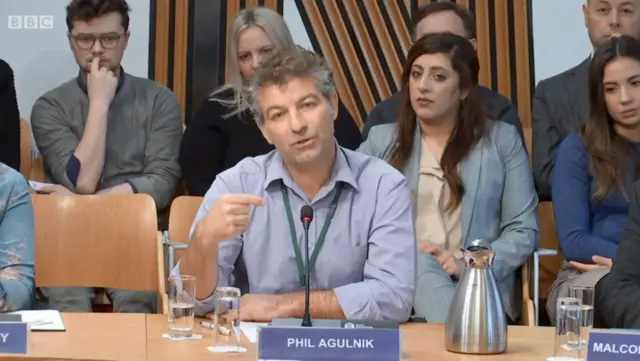
Phil Agulnik from entitledto
Louise Murphy from Policy in Practice wonders if some of the devolved Scottish benefits could be automated as the DWP will have gathered the data already.
I don't think there is a big ban solution, rather smaller interventions to move things forward, adds Phil Agulnik from entitledto.
Mr Agulnik says the complicated part of this is trying to find people who are in the stock of the system which leads to difficulty in terms of IT.
Allow X content?
This article contains content provided by X. We ask for your permission before anything is loaded, as they may be using cookies and other technologies. You may want to read X’s cookie policy, external and privacy policy, external before accepting. To view this content choose ‘accept and continue’.
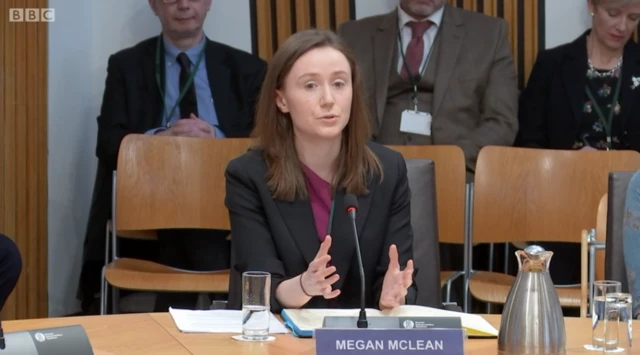
There is also the issue of departments being siloed and not sharing information, Mr Gardner adds.
Megan McLean from Policy in Practice points to some data being shared to tackle benefits fraud and on the rollout of carers' allowance.
She adds that GDPR did not bring about huge changes on sharing data between agencies, but rather changed people's right to know what is held on them.
Allow X content?
This article contains content provided by X. We ask for your permission before anything is loaded, as they may be using cookies and other technologies. You may want to read X’s cookie policy, external and privacy policy, external before accepting. To view this content choose ‘accept and continue’.
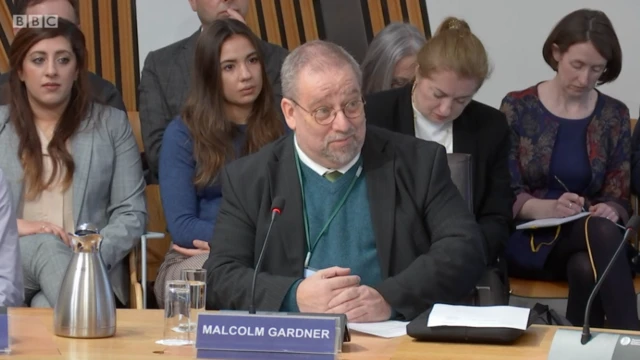
Malcolm Gardner from Team Netsol Ltd
SNP MSP Keith Brown wonders if IT could help to reach full take up of benefits.
Malcolm Gardner from Team Netsol Ltd replies the technology exists but the difficulty is more around the policy.
To build such a system would require citizens to be actively involved and some would not want to be involved, he adds.
Mr Brown suggests that in many cases the state has the information it needs already.
Mr Gardner points out the joining up of data between organisations is down to the politicians.
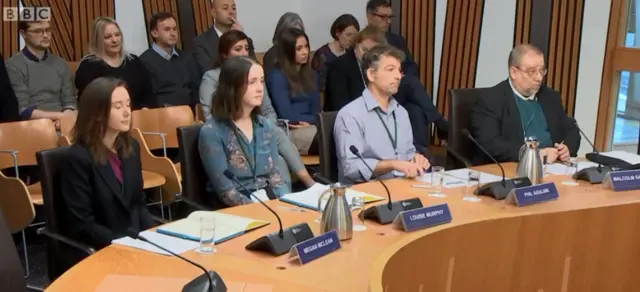 Image source, bbc
Image source, bbcCommittee convener Bob Doris welcomes:
The focus of this first evidence session will be on benefits automation.
The Social Security Committee will shortly take evidence on how to improve the uptake of benefits.
MSPs will focus on the benefit automation with the first witness panel:
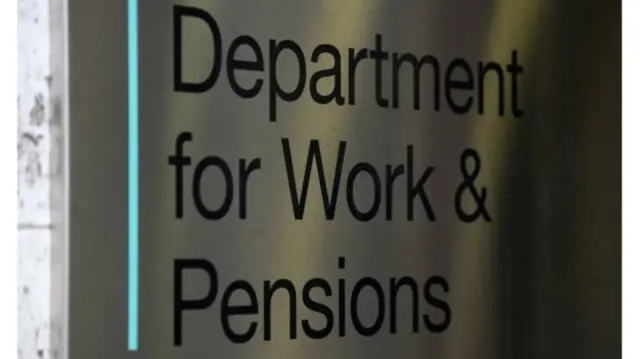 Image source, PA
Image source, PAand then from:
 Image source, bbc/Pa
Image source, bbc/PaWe'll bring you extensive coverage of first minister's questions from noon
Welcome to BBC Scotland's Holyrood Live coverage of the Scottish Parliament on 23 January 2020.
9am: The Social Security Committee will take evidence on benefits uptake from, among others, the DWP
11.40am: General questions
12pm: First minister's questions
12.45pm: Members’ business: Beatrice Wishart – The Proposed Centralisation of Air Traffic Control in the Highlands and Islands
2pm: Farmers and Crofters ministerial statement
2.30pm: Portfolio questions: Education and skills
2.50-5 pm: Stage 1 Debate: Consumer Scotland Bill